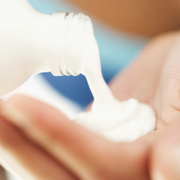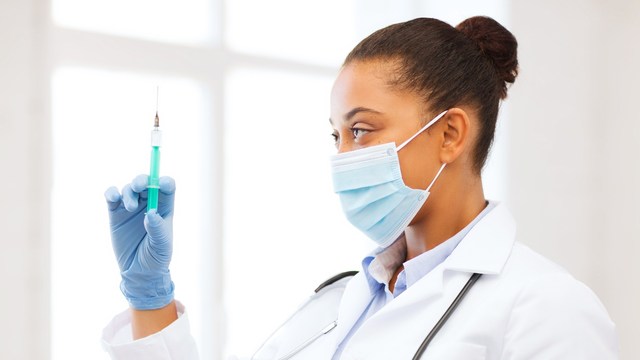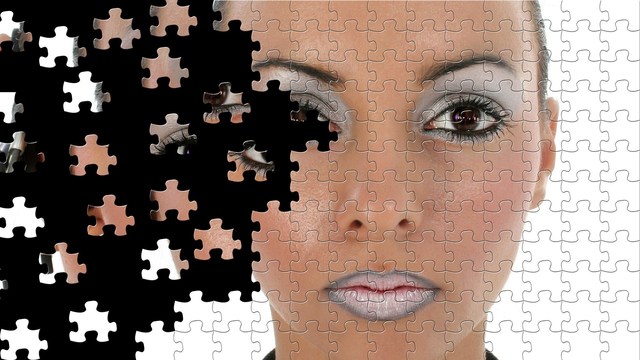 Stockbyte/Thinkstock
Stockbyte/Thinkstock
Shingles (herpes zoster) is a painful skin rash that is described as having an itching, burning or tingling pain.
Shingles is caused by the same virus as chicken pox but because the virus never clears from the body, it can flare up years later due to an emotional or physical stress/illness.
Shingles more commonly occurs in those over the age of 60, however, anyone who has had chickenpox as a child (even a mild case) can develop shingles.
In my article, The Shingles Vaccine: How to Get One , information about how to get the vaccine was presented. The CDC recommends that those over the age of 60 be vaccinated, and there is evidence that it helps those aged 50 to 59 as well.
However, not everyone should receive the shingles vaccine. According to the CDC, the following people should not get a Zostavax vaccine:
- If you have a life-threatening allergic reaction to gelatin, the antibiotic neomycin, or any other component of the shingles vaccine. Tell your doctor if you have any severe allergies.
- A weakened immune system because of:
◦ HIV/AIDS or another disease that affects the immune system
◦ Treatment with drugs that affect the immune system, such as steroids
◦ Cancer treatment such as radiation or chemotherapy
◦ A history of cancer affecting the bone marrow or lymphatic system, such as leukemia or lymphoma
◦ Active, untreated tuberculosis
- Women who are or might be pregnant. Women should not become pregnant until at least three months after getting shingles vaccine. (WebMD 1)
If you are someone who cannot get the shingles vaccine or if you find you are having an outbreak of shingles (which can still occur even if you had the vaccine) what should you do?
First, go see you doctor as soon as you notice symptoms which are burning pain and sensitive skin that progress to small blisters on reddened skin.
Your doctor may prescribe antiviral medication which work best if taken within three days of developing symptoms. Antivirals may be taken by those who are immunosuppressed and if a woman is pregnant.
There are three antivirals that can be taken once a shingles outbreak has occurred: acyclovir (Zovirax), famciclovir (Famvir) and valacyclovir (Valtrex). They can be taken orally or intravenously in more serious cases.
Antivirals work by preventing the shingles virus from multiplying so the length of time one has the rash is shortened, pain is reduced and they may prevent the person from developing postherpetic neuralgia.
According to WebMD, side effects of antivirals may include headaches, nausea and loss of appetite.
Corticosteroids may also be prescribed by your doctor if he feels your immune system will tolerate them.
For pain, acetaminophen and ibuprofen can be taken. For severe pain, stronger medication may be prescribed by your doctor such as an opiate.
Topical antibiotics may be required to keep the blisters from becoming infected. Cool compresses and an anti-itching lotion such as calamine may also help the discomfort.
The rash should be covered with a sterile non-stick bandage to keep clothing from rubbing against the lesions and to protect other people. Shingles is not contagious but someone who has not had chickenpox can develop it from exposure to shingles.
If after the shingles outbreak the person develops postherpetic neuralgia, pain will continue along the path of the nerve affected. There are various nerve pain-blocking medications that can be used to treat a postherpetic neuralgia but there is no cure.
Take Our Shingles Quiz to learn how to manage it.
Sources:
1. Shingles – Medications. WebMD. Retrieved May 21, 2012.
http://www.webmd.com/skin-problems-and-treatments/shingles/shingles-medi...
2. Antivirals for Shingles. WebMD. Retrieved May 21, 2012.
http://www.webmd.com/skin-problems-and-treatments/shingles/antivirals-fo...
3. Shingles Treatment. From Heather Brannon, MD. About.com Guide
Updated March 16, 2008. Retrieved May 21, 2012.
http://dermatology.about.com/od/infectionvirus/a/shingletx.htm
4. Shingles (Herpes Zoster). MedicineNet.com. Retrieved May 21, 2012.
http://www.medicinenet.com/shingles/article.htm
Michele is an R.N. freelance writer with a special interest in woman’s healthcare and quality of care issues. Other articles by Michele are at www.helium.com/users/487540/show_articles
Edited by Jody Smith





Add a CommentComments
There are no comments yet. Be the first one and get the conversation started!